Toyota is well known for building durable and lasting cars compared to its many competitors. And since their brand name is already synonymous with the word reliability, you might have also wondered how long Toyota head gaskets last. In this article, we have researched and asked the experts to get the answer for you.
Like most, Toyota's head gaskets reach up to 200,000 miles. With proper maintenance, in addition to the brilliance of its Japanese engineering, your Toyota head gasket can easily surpass this. It is also noteworthy that head gaskets are typically not a common issue when it comes to the usual repairs needed for your car.
Interested in learning more about Toyota head gaskets? Continue reading below as we explore more facts and give tips about diagnosing a bad head gasket, dealership acceptance of a blown engine, and more!
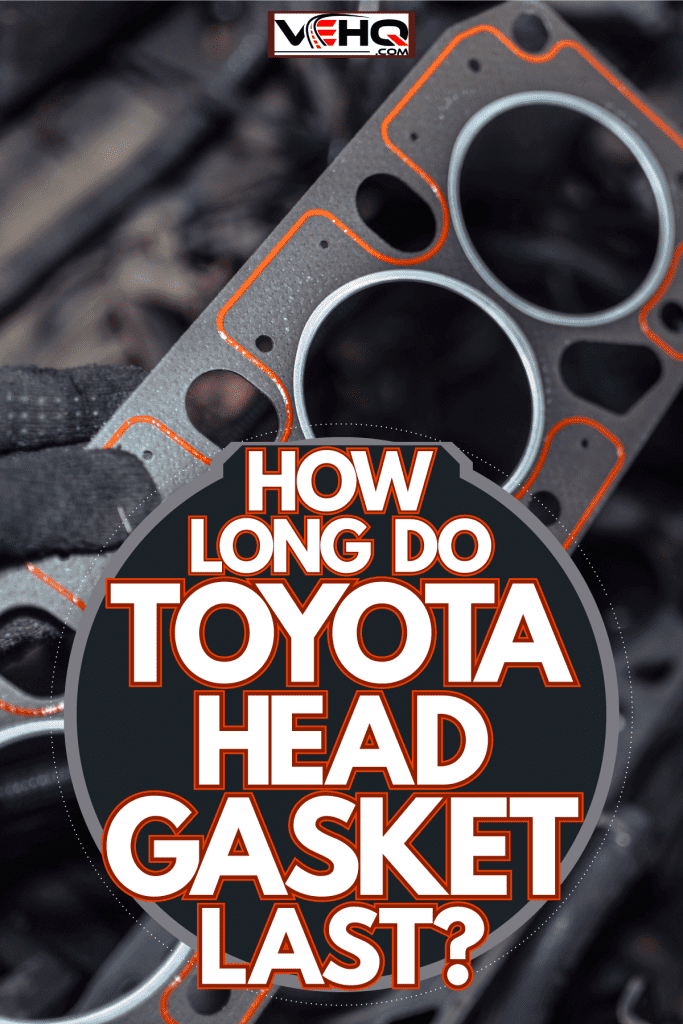
Are Toyota head gaskets well built?
Toyota, throughout the years, has had a reputation for its well-built cars and their components. A 2021 consumer report list does not include Toyota for head gasket problems. Instead, in some instances, Toyotas were recommended as replacements to the vehicles that had made the list.
Toyota purposely overbuilds their engineering and design aspects to maintain quality products. A testament to this building process is the multiple Toyota cars that reached one million miles on their odometers, all with their original engines and transmissions having as little as a dead battery as their biggest problem.
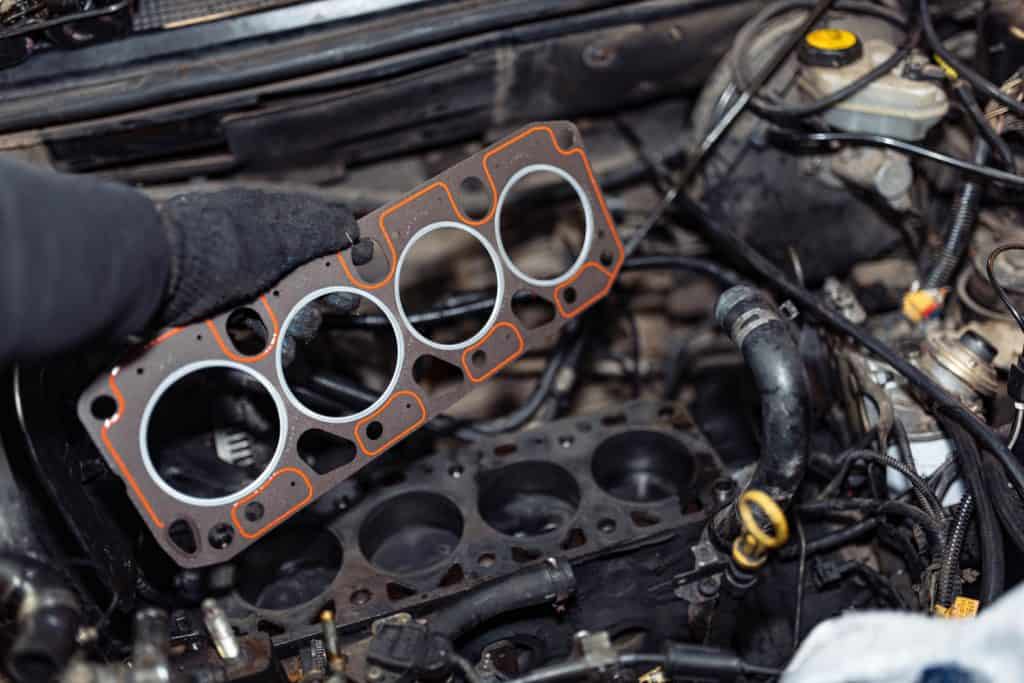
Another thing that separates Toyota from other manufacturers is the fact that they take time to develop their technology. With most car manufacturers racing against each other to release something new, Toyota does not rush their cars. Instead, they make sure that enough research and development is done to ensure that their products are safe, reliable, and durable.
More proof that Toyota components such as their head gaskets are truly sturdily built is an another consumer report, this time about the most reliable cars of 2021. The top-notchers of this list are Lexus (the luxury car division of Toyota), Mazda, and Toyota. And because of this, Toyota remains the best-selling car brand in the US in 2021.
Symptoms of Head Gasket Problems
The main function of the head gasket is to serve as an air-tight seal between the two parts of your engine. The top part is called the head, where the valves control the airflow upon entering and exiting the cylinders. It is also where the fuel is brought to the cylinder bank.
While the bottom of the engine is where the cylinders and pistons convert the fuel to make the car move.
Despite gaskets not being a common problem for cars, they can still happen to any car, even with Toyotas, especially if you are not taking care of your vehicle. So here we will help you identify some tell-tale signs that your head gasket has already gone bad.
Engine overheating
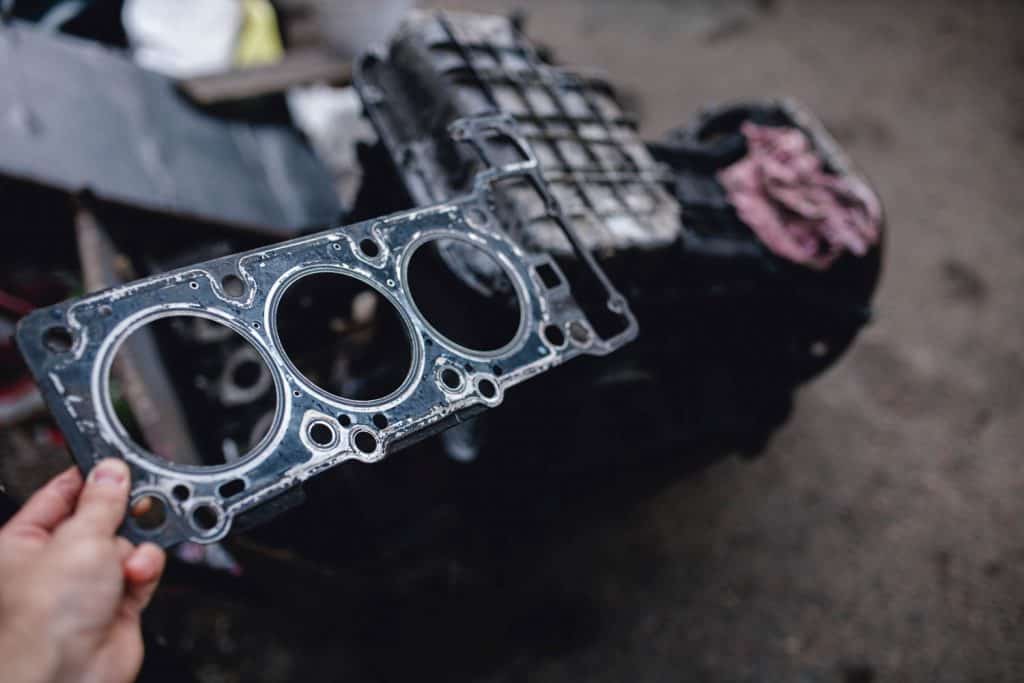
When your head gasket fails, it hinders your engine from cooling down faster as it disrupts the smooth flow of the coolant throughout your motor as it fails to seal the oil and the coolant away from each other. Ironically enough, improper coolant maintenance can also cause overheating, which in turn can cause your head gasket to melt.
Constantly low coolant
Another indication of a bad head gasket is coolant leakage. Because of a faulty head gasket, antifreeze can leak from your engine as it escapes every time the engine gets hot. If you see yourself often adding engine coolant, the culprit could be a blown head gasket.
We have written an article to help you check your coolant level titled, "How Do You Check Antifreeze/Coolant Level," go ahead and check it out!
Mixed Coolant and oil
You can check your radiator caps if your coolant has residues of oil in it. This can be accompanied by the presence of a mayonnaise-like foam consistency which is the engine oil and antifreeze mixing.
Start-up trouble
If you notice white smoke coming out of your exhaust pipes during start-up, this can be one symptom of a malfunctioning head gasket. This can tell you that the cylinders are struggling at start-up due to the head gasket failing to stop coolant from leaking to your cylinders.
There are also other problems causing smoke to come out of your exhaust, as explained in our previous article titled, "Smoke Coming From Exhaust—Here’s What Could Be Wrong."
As you might have noticed by now, each part of the engine is interconnected, so it is very easy for damage in one part to spread to another. In turn, any damage can affect the whole integrity of the engine. So it is very important to keep track of your maintenance as these are preventive measures that help your engine run optimally.
Causes of head gasket failure
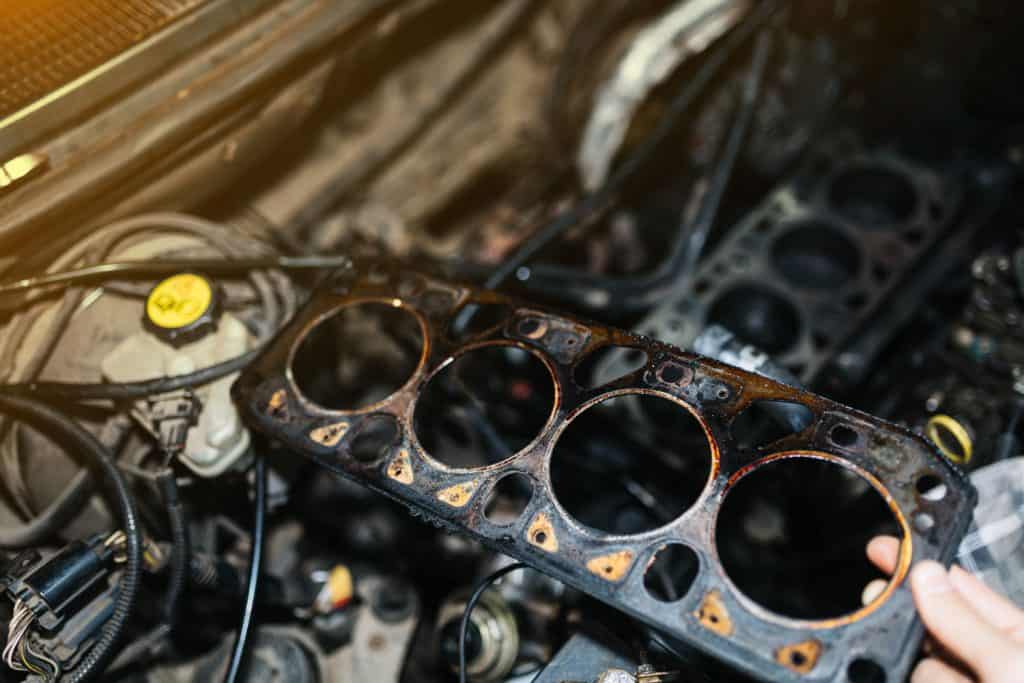
There are multiple possible reasons why your head gasket has failed. One major cause is previous overheating incidents. The head gasket is already under constant pressure due to how hot the engine had been. Especially when it is working hard, going beyond its recommended temperature can cause the head gasket to melt or permanently deform.
A badly designed head gasket is another cause of failure, especially aluminum material ones. Aluminum was fairly common in older model cars but it has since been upgraded to other composites such as silicone, metal, cork, felt, neoprene, etc. To further compensate for the heat, thermal properties were also added to gaskets to make them more heat resistant.
Another way of damaging your head gasket is by improper warmup of your engine. When starting up your car, you should not immediately rev it up especially if it is from a cold start.
This will put unnecessary pressure on your engine that can make your head gasket blow up. Wait for the engine to warm up, refer to your temperature gauge before putting your foot on the gas.
Cost of blown head gasket repair
The national average cost of repairing a blown head gasket is anywhere from $1,624 and $1,979. While the labor costs are estimated between $909 and $1,147 -the parts vary in the range of $715 and $832.
This figure, however, still depends on the type of damage as prices might be higher if it has already escalated to bigger problems for the engine. That's why early detection is important.
As soon as you notice some of the signs that we have mentioned above, it is better to have your car swiftly checked by a trusted mechanic to immediately assess your vehicle. This will save you money in the long run.
Can you drive with a blown head gasket?
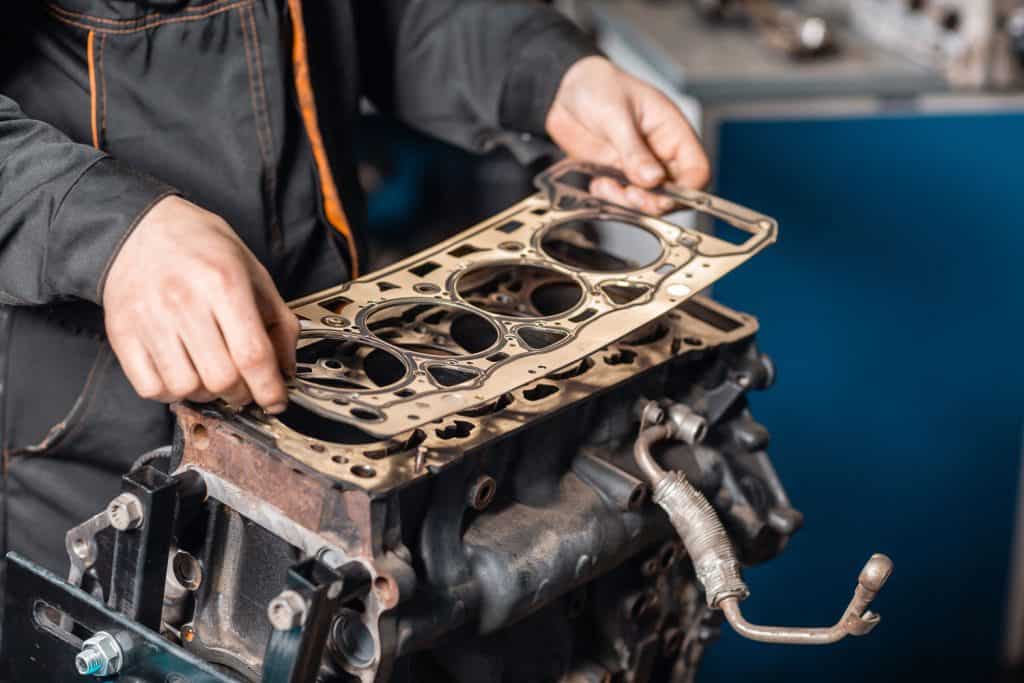
You can drive but we advise you not to. By using your car with a blown head gasket you are only incurring more and more damage to it that can lead to it being irreparable. It can also cost you thousands more in repair costs as this will only result in problems with other parts of your vehicle.
Driving with a blown head gasket can also make your car catch fire. As hot coolant leaks to your engine bay, it can cause burns under the hood that if left unnoticed can easily ignite a fire that may lead to an explosion, putting your life and other motorists on the road in danger.
Can you trade in a car with a blown head gasket?
Yes, you can. There are plenty of options that you have, you can either trade it to a dealership or sell it to your local junkyard buyer for parts. The dealership will usually assess the damage first and see what's left of the value of the car. Just don't expect to get big cash in return.
The overall condition of the car is also factored, as cars that are more likely to be repaired are still worth some money. But totaled ones are usually valued at their weight for metal scraps. You can also go to websites such as damagedcars.com to sell your wrecked vehicle.
In summary
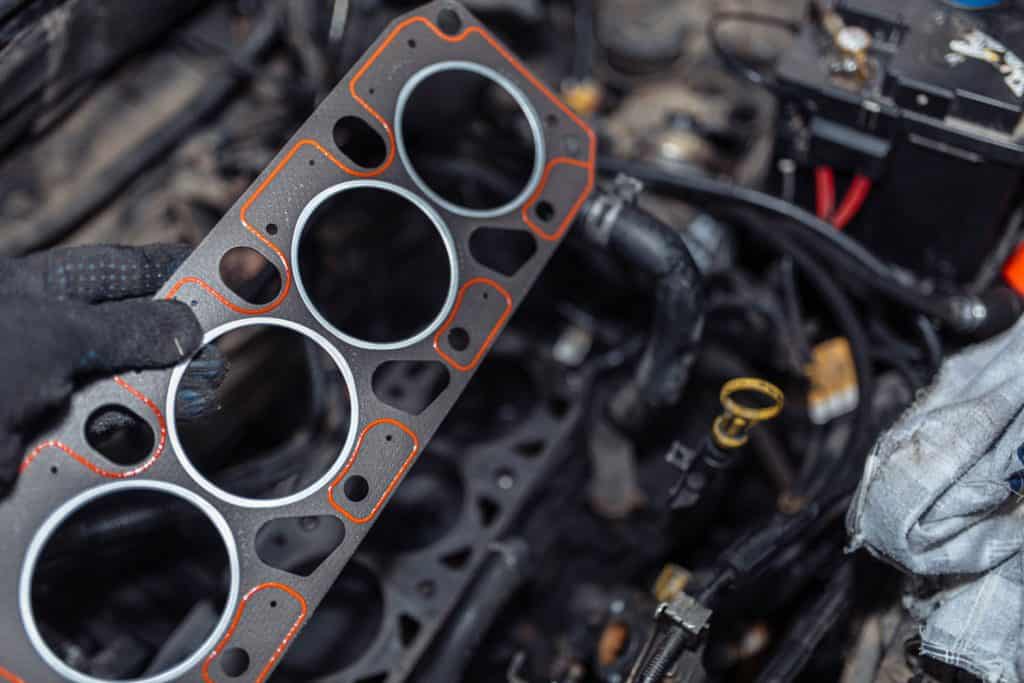
Toyota head gaskets will usually last you a long time, especially because Toyota components are well built and designed to last for years even with heavy use. Just remember to always have your regular maintenance so your car and its components can easily last.
